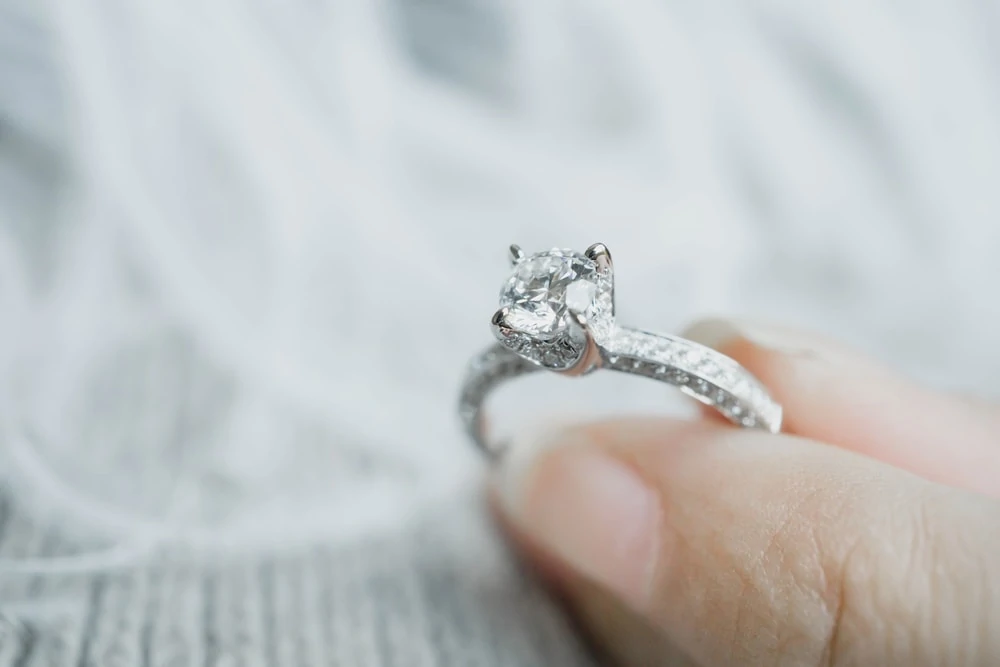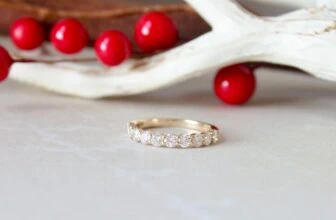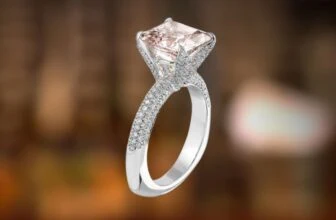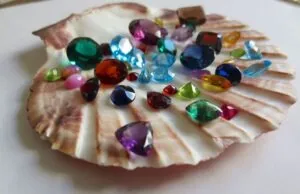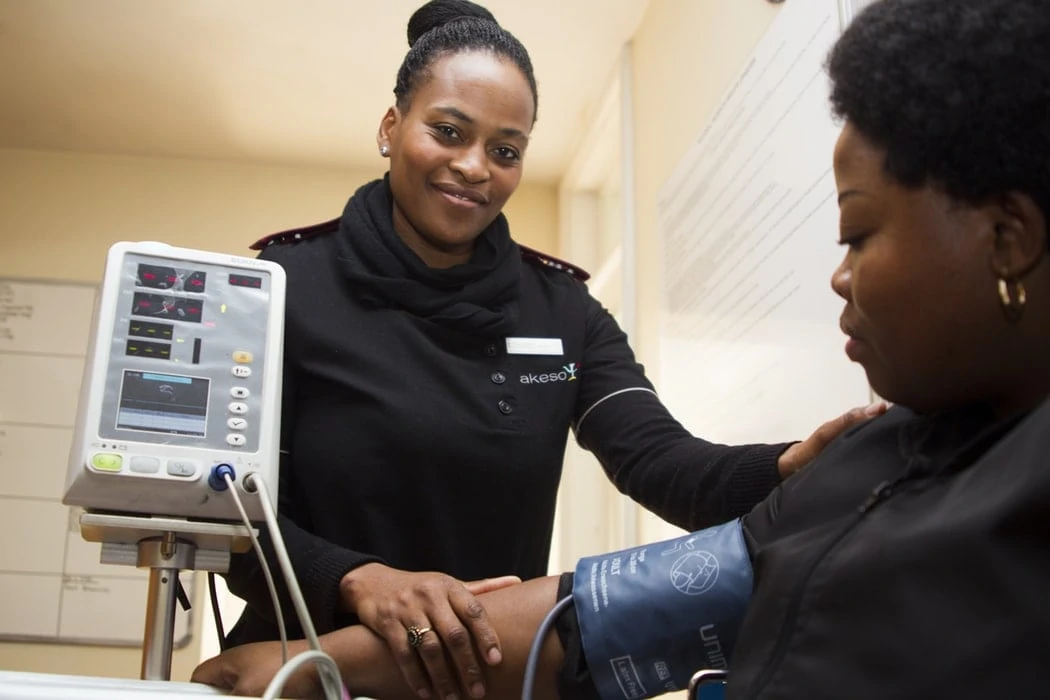
Table of Contents
Medical professionals like nurses and doctors play an incredibly vital role in society. With their busy schedules, the demands of their profession, and the need to maintain stringent hygiene standards, finding an engagement ring that not only symbolizes their love but also suits their profession can be challenging.
That being said, there are designs out there that can bridge the gap between the practical and the refined and luxurious. Whatever engagement ring design you choose as a doctor or a nurse, it will require some thinking through. Let’s take a look at the best options for you.
Jewelry and the Health Sector
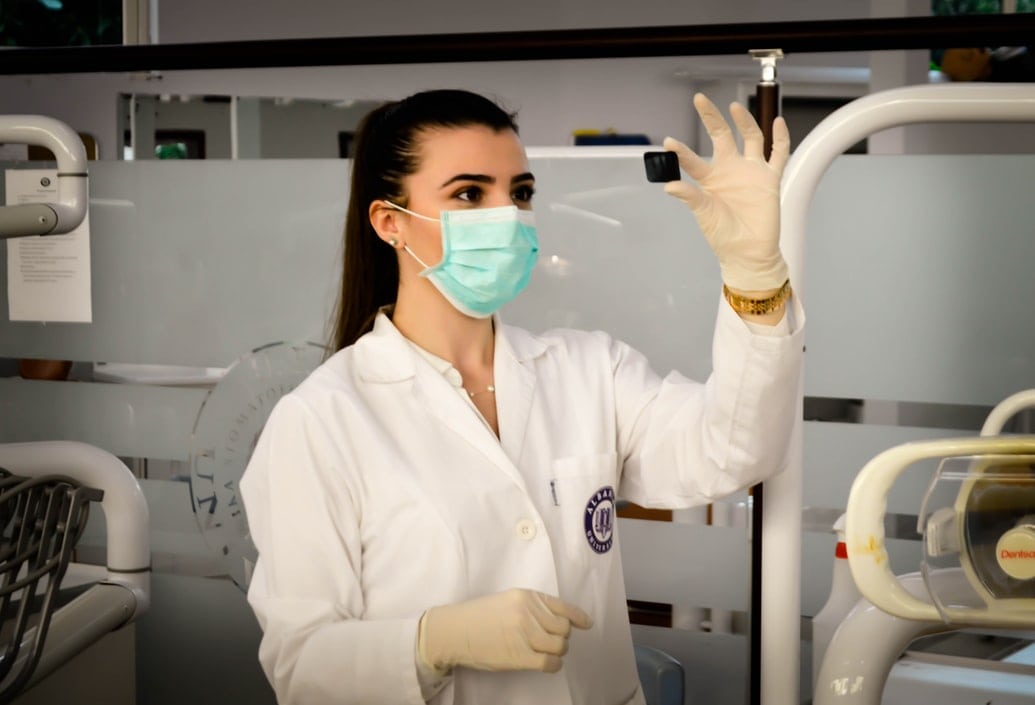
Health care professionals like doctors and nurses use their hands a lot during work, with frequent hand washings and exposure to chemicals. So, when choosing a ring design, not only would you want to choose a ring that’s safe to wear, but one that doesn’t get damaged.
Many clinics have introduced restrictions on jewelry wearing by front line staff. Think about it:
- Rings can snag on clothes and skin, becoming a health and safety issue.
- It can also be hazardous in terms of carrying germs and spreading infection between the practitioner and the patient.Rings that incorporate diamonds and gemstones can harbor bacteria within the grooves and spaces of the design.
- Most medical staff are required to wear latex gloves for the most part of the day, so a snag-free ring design that will enable you to put protective gloves on and take them off with ease, is important.
The trick is to find a ring that’s safe to wear and can be kept from damage, while looking stylish. And it all comes down to the setting.
Best Ring Settings for A Nurse or Doctor
Because rings worn by healthcare professionals take a beating every day, it’s best to choose a gemstone like diamonds or sapphires which can withstand extreme exposure. It’s also important to choose a hypoallergenic metal that is safe for you to wear. These then need to be crafted into a ring setting that doesn’t snag, and is easy to clean. Here are our favorite options.
1. Bezel Setting
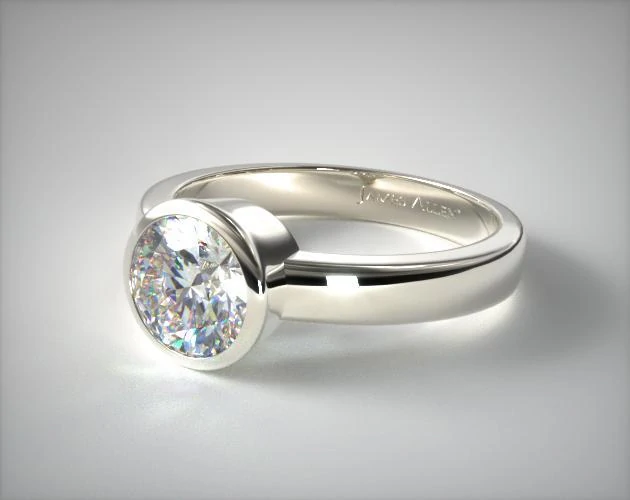
Bezel set rings can make for the perfect engagement ring if you’re a nurse or doctor. These settings greatly reduce the risks normally associated with a prong setting. The central gemstone or diamond is still raised, but in a more secure setting that won’t work loose. Also, without prongs, the risk of snagging, chipping and being subject to impact damage are minimized. Bezel set rings are designed so that they hold a diamond inside a thin piece of custom-made metal designed like a rim, whilst still displaying the shape of the stone and its captivating sparkle.
2. Low Profile Rings
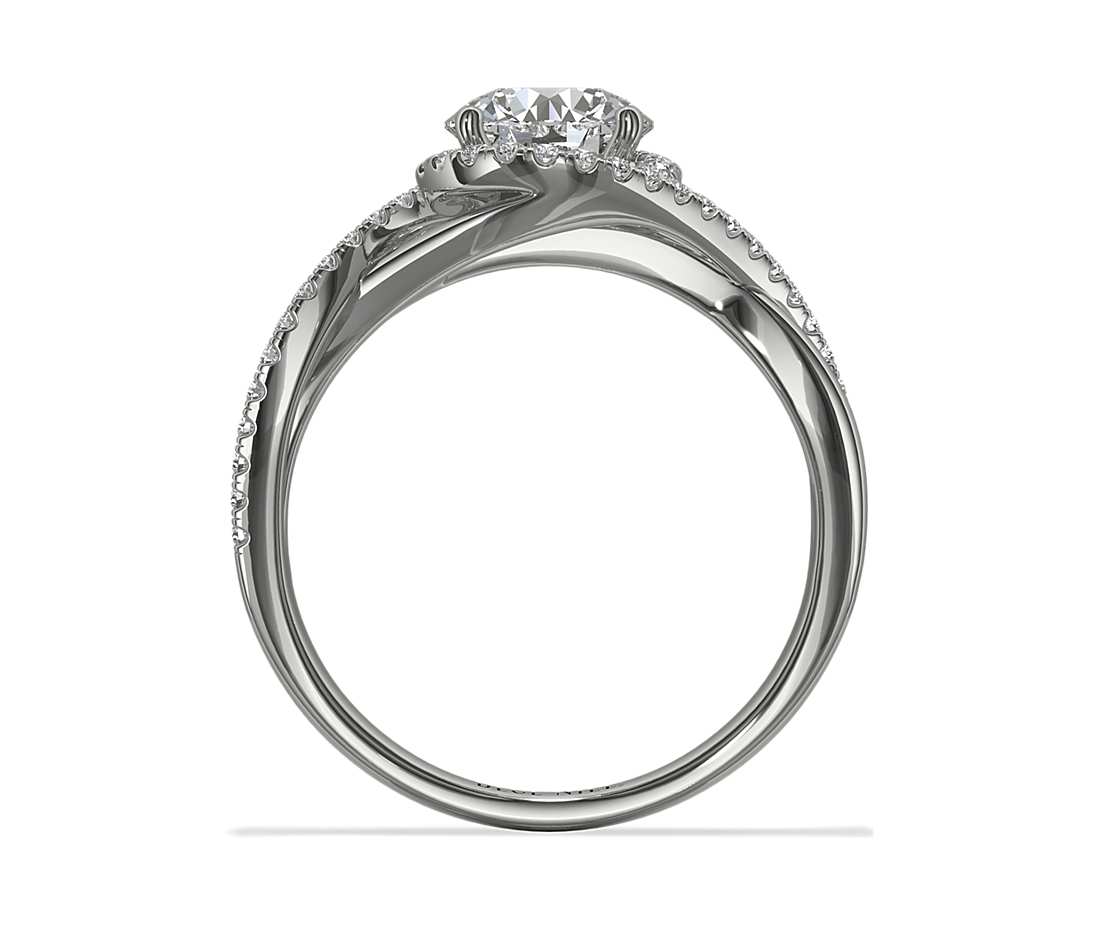
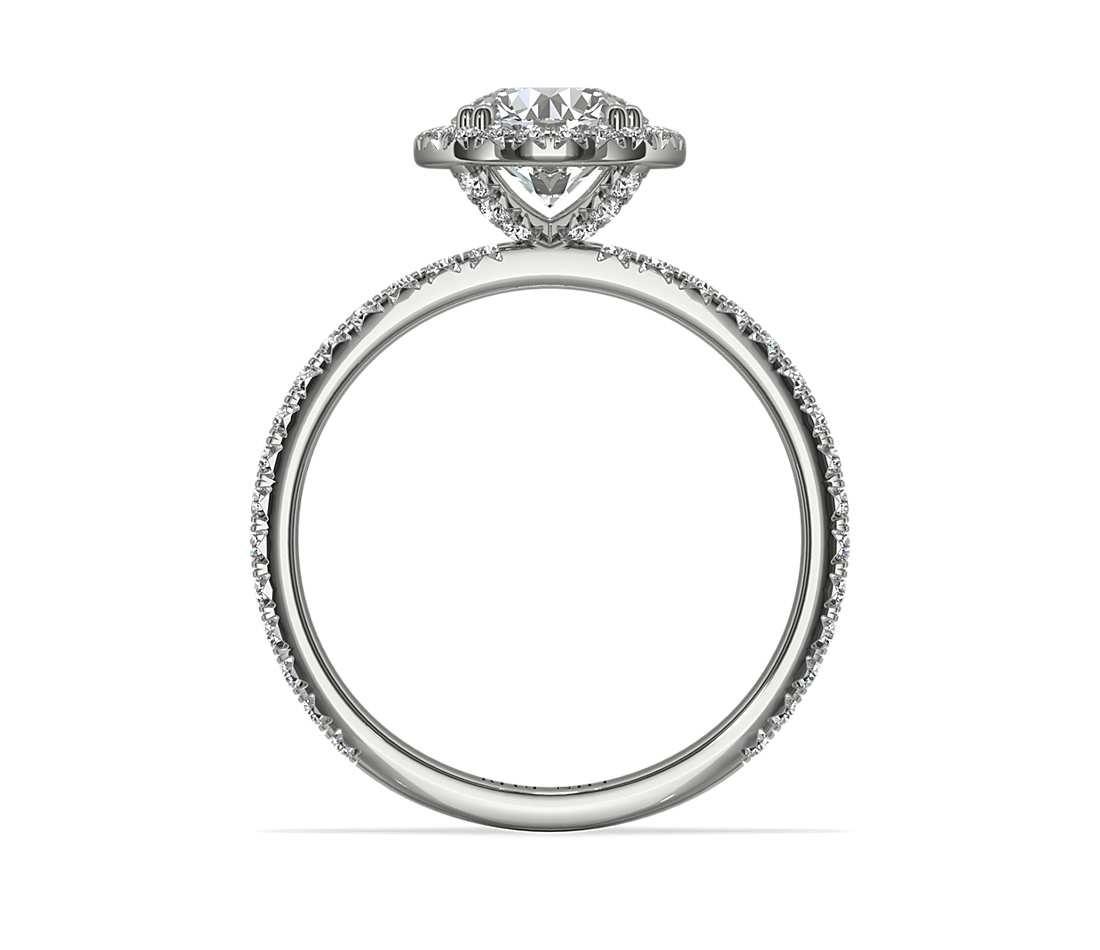
Low profile rings sit closes to the skin, reducing the risk of being caught on work equipment. Whilst these designs can be less extravagant, they offer a comfortable and streamlined look for those who prefer modern jewelry designs. The closer to the finger the diamond or gemstone sits, the less obtrusive it will be.
Channel set diamond rings are low profile and still able to add a touch of sparkle to formal attire without becoming a nuisance. Diamonds are set closely together in a channel set ring, making it difficult for dirt to get underneath the simple setting of each stone.
3. Eternity Bands
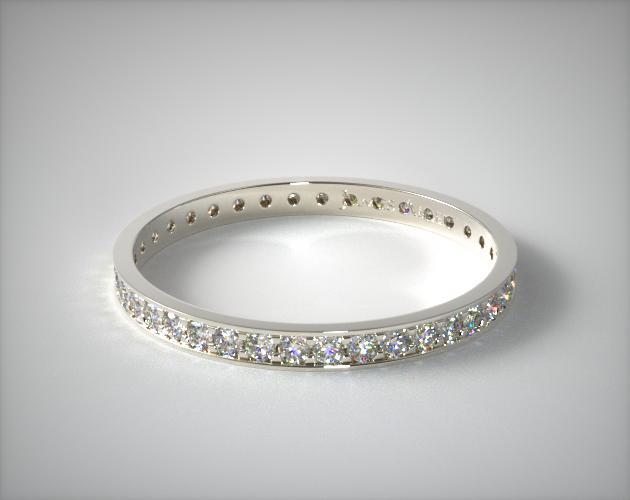
Eternity bands for doctors and nurses make for a practical and elegant design to show-off in the workplace. Symbolic of eternal love, a diamond eternity ring is typically worn as wedding rings, but also make for a nice engagement ring. The design will feature identical-sized stones placed along the entire band of the ring.
You can also opt for a half-eternity ring, where only half the band is studded with diamonds. With diamonds set around the front half of the band only, this style of ring is a more discreet and understated design for pairing with work attire. Eternity rings in flush settings and channel settings are best as the diamonds are held more securely and have less chance to fall out, but pave set eternity rings are also an excellent option.
Best Engagement Ring Metals for Doctors and Nurses
As a healthcare professional, you’ll spend a considerable amount of time during the day washing your hands so a material that won’t tarnish over time is advantageous. A biocompatible metal is another important consideration when looking at engagement rings for nurses and doctors, especially if your role at work involves anything surgical-related.
1. Gold: A great option, but can get caught on objects and cause injury.
Gold is the most popular option for engagement and wedding rings but choose a higher karat alloy like 14K or 18K golds for a purer, biocompatible option. However, gold isn’t as durable as platinum or titanium. White gold will require frequent rhodium plating while yellow gold tends to dent and scratch. Rose gold holds up better due to the copper content that makes the alloy more durable.
2. Platinum: Scratch-resistant and easier to maintain, but can also cause injury if caught.
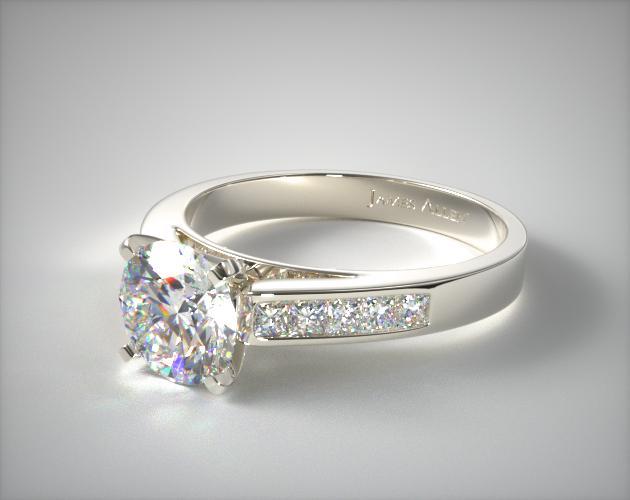
Platinum engagement rings for doctors and nurses are a great option since they are relatively scratch-resistant and add a beautiful luster to the ring, closely resembling that of white gold. Platinum is also durable, making it an ideal choice for wearing to work each day. Its anti-corrosive properties and density make it strong enough for wearing every day without tarnishing. Platinum is also a hypoallergenic metal, so it’s perfect for nurses and doctors who suffer from skin allergies or skin reactions to other metals.
3. Titanium: Hypoallergenic and light-weight, therefore very comfortable, but cutting off can be difficult in emergencies.
Like platinum, titanium is also hypoallergenic and is often used for surgical implants. This makes it a great option for those working in a healthcare setting who suffer from sensitivities to other precious metals. Another advantage of titanium jewelry is its lightweight feel on the finger. Titanium is also very affordable but resizing it can be difficult or to cut off in an emergency.
4. Silicone: Flexible, safe, and practical, but not the most stylish.
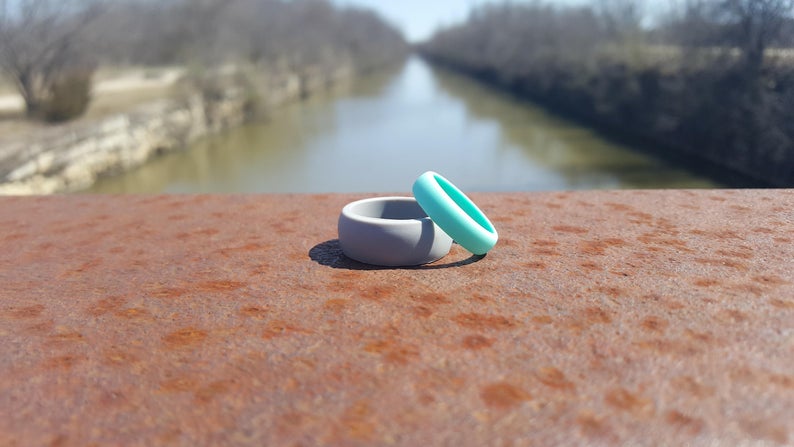
There are now several manufacturers creating engagement rings for nurses and doctors from medical grade silicone, tested specifically for biocompatibility. Silicone rings are a practical alternative to metal for many reasons. They’re easy to clean, affordable to replace, won’t rip on gloves and are comfortable and lightweight to wear.
Alternatives to Wearing an Engagement Ring
If you’re a nurse or a doctor and your work setting won’t allow for a ring to be worn on the finger, there are alternative ways to enjoy wearing your ring whilst keeping it safe.
Wearing a wedding band or engagement ring around the neck is becoming an increasingly popular way to keep a sentimental piece of jewelry close, whilst adhering to health and safety rules within the workplace. You can opt for a wishbone-style pendant, like this one, to hold your ring. Rings can also be worn on a key chain as another alternative and kept close and safe.
Wrapping Up
Choosing the right engagement ring if you’re a nurse or doctor doesn’t need to be too challenging if you consider the three factors we’ve covered in this article. Consider the ring styles available to suit your taste. If you like designs with a touch of sparkle, figure out how you can incorporate a diamond into your engagement ring without the design being hazardous for the workplace. Consider materials to suit your role at work as well as your skin type and skin tone. Lastly, decide if wearing your ring an alternative way when in the workplace is a better and safer option for you.


